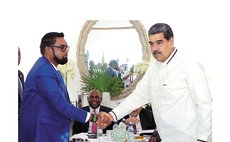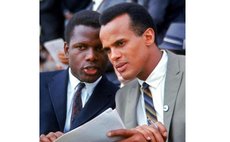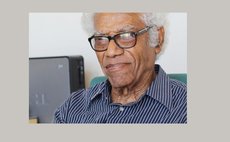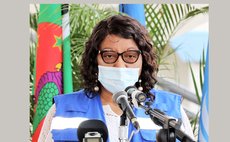Cuba, U.S. end prolonged talks on reopening embassies without reportable progress
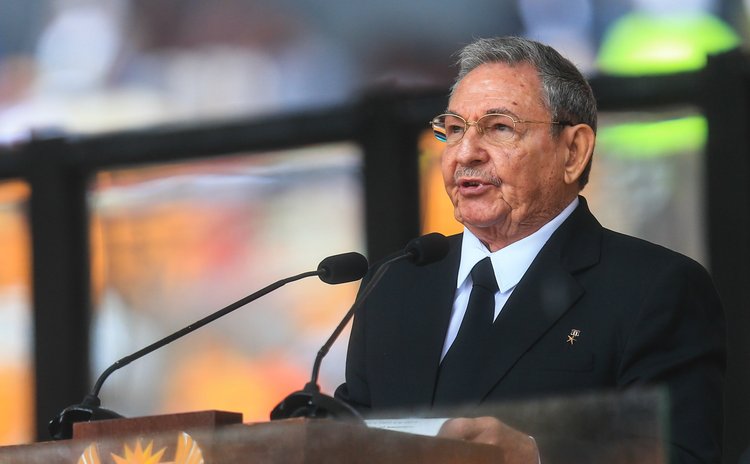
HAVANA, May 22 (Xinhua) -- Cuba and the United States failed to seal a deal on reopening embassies in the latest round of talks that ended in Washington on Friday, though both had expressed optimism before.
But delegations agreed to continue the dialogue on aspects related to functioning of diplomatic missions, a statement from the Cuban delegation said on Friday.
Leader of the Cuban delegation, Josefina Vidal, who is also the director of U.S. affairs at the Cuban Foreign Ministry, said the two sides will meet more in the coming weeks on functioning of the embassies, as they "continued to make progress" in the just-concluded round of talks.
On the U.S. side, chief negotiator Roberta Jacobson, Assistant Secretary of State, however, said that there is no need for her to meet with Vidal for another round of negotiations. The two countries will meet through their so-called "Interests Sections" based in each other's capitals, Jacobson said.
The latest round of talks took place after the U.S. government awarded a license to a bank to provide banking service to the Cuban Interests Section in Washington.
During the talks, the Cuban delegation reaffirmed its willingness to address substantive issues including, among others, ending the blockade, which would allow for progress toward normalization of relations on the basis of mutual respect, sovereign equality and reciprocity, once diplomatic relations are reestablished, the Cuban statement said.
According to a report released on Friday by the Cuban official website of Cubadebate, both delegations have dealt with one of the most controversial issues, the behavior of the diplomatic staff prior to the respect of principles and standards reflected in the Vienna Conventions.
Washington demands freedom of movement for its officials, while Havana, whose representatives have the same restrictions, demands the end of encouraging subversion by the U.S. staff and compliance with international behavior rules, the report said.
Such behaviors should be committed to sovereignty of the states and non-interference in their internal affairs, the report said.
After the December announcement of kicking off normalization of relations by Cuban President Raul Castro and his U.S. counterpart Barack Obama, Cuba and U.S. have finished two rounds of talks in January and February aimed at restoring diplomatic ties and a follow-up meeting in March.
Progress has been made during the previous talks, but differences on major issues such as the lifting of the U.S. embargo against Cuba, returning of the Guantanamo Bay still remain.
During the first round, Cuba clashed vehemently with the U.S. over the latter's Cuban Adjustment Act and the "wet foot, dry foot" immigration policy, which allows Cuban migrants who reach American soil to remain in the country.
The two sides also discussed issues related to reestablishment of diplomatic relations, as well as issues of bilateral interest, such as cooperation in the fight against terrorism, drug dealing and human trafficking.
Both sides described the talks as "positive and productive" with "profound differences" remaining.
In the second round of talks, held amid objection by many Republicans, Cuba's request for its removal from the U.S. blacklist of state sponsors of terrorism became one of the major topics.
Limited progress was reportedly achieved in that round, though Jacobson described it as "productive" and "encouraging". She was optimistic then that the two sides could open embassies before the Summit of the Americas on April 10-11, which was not realized as she expected.
A follow-up meeting held in Havana in March also ended with no reportable progress. The U.S. sanction against Venezuela, Cuban's most important ally, was believed to have been the main obstacle, along with the unsolved terrorism list issue, and Cuban Consulate's lack of banking services in the U.S. then.
Although U.S. Secretary of State John Kerry said during the second round of talks that re-establishing diplomatic ties should not be linked to the list, Cuba didn't soften its hard stance on this point.
Obama agreed to take Cuba off the list on April 14, three days after his face-to-face talk with Castro at the Summit of the Americas, the first between top U.S. and Cuban leaders in six decades.
